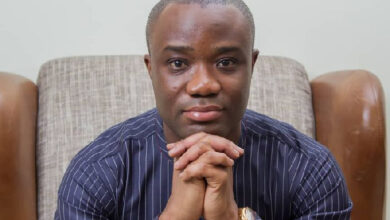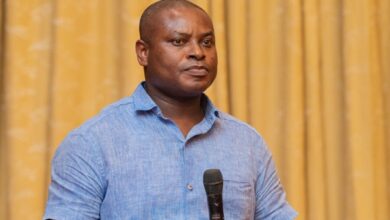Mahama’s Suspension of Chief Justice Surprising and Unprecedented – Law Lecturer
Legal expert says this marks the first time in Ghana’s history that Article 146 is being used to suspend a Chief Justice.

- President Mahama’s suspension of the Chief Justice is the first under Article 146 of the Constitution
- The President must refer petitions to a committee and can only suspend on advice from the Council of State
- Law Lecturer stresses the need to follow constitutional procedure and avoid politicizing the judiciary
Edmund Nii Amasah, a Law Lecturer at the Kwame Nkrumah University of Science and Technology (KNUST), has described President Mahama’s recent letter suspending the Chief Justice (CJ) as “surprising.”
Speaking in an interview on the Ghana Se Sen Morning Show on Lawson TV/Radio, Mr. Amasah offered legal and constitutional context to the unfolding situation.
Background to the Suspension
President John Mahama issued the suspension letter following a formal petition submitted to his office, calling for the removal of the Chief Justice over allegations of misconduct and abuse of office.
In response, the President, citing Article 146 of the 1992 Constitution, referred the petition to the appropriate committee for investigation.
Alongside this, he issued a letter on April 22, 2025 suspending the Chief Justice with immediate effect, pending the outcome of the proceedings.
The suspension has since sparked widespread debate, with legal experts, civil society groups, and political figures weighing in on its legality and implications.
Law Lecturer’s Legal Analysis
According to Mr. Amasah, the office of the Chief Justice does not have a fixed tenure but is constitutionally protected, with removal only possible on grounds such as incompetence or other serious misconduct.
He acknowledged the symbolic importance of cooperation between the Speaker of Parliament, the President, and the Chief Justice, but stressed that once a petition is received, specific legal steps must be followed.
“This is the first time in our history we are invoking Article 146 to suspend a Chief Justice,” he noted. “Clauses 1 to 11 clearly state what steps must be taken. The President’s role is limited—once a petition is received, he must forward it to the appropriate committee.”
Mr. Amasah clarified that although the Constitution states the President may suspend the CJ, this action must be based on advice from the Council of State.
“Once a committee is formed and proceedings begin, the practice is that the CJ is suspended pending the outcome,” he said. During such a suspension, the most senior justice typically assumes the role.
He emphasized that the committee’s hearings must be held in camera—privately—to protect the Chief Justice’s reputation during the investigative process. “This is not just about legality but also about respect for the institution,” he said.
Concerns About Politicization
Mr. Amasah expressed concern about what he sees as the increasing politicization of the judiciary. “The Chief Justice issue has become too political. We need an independent body, not just the President, to appoint the heads of institutions like the judiciary,” he argued. “When it comes to the Chief Justice, there should be no question of prima facie cases—everything must strictly follow the law.”





